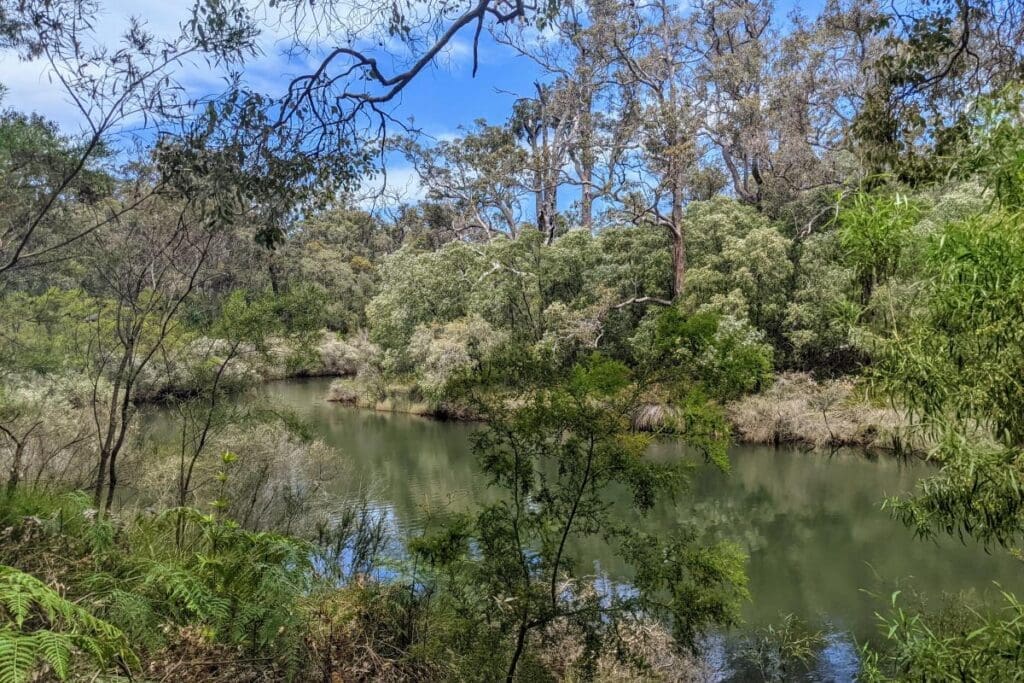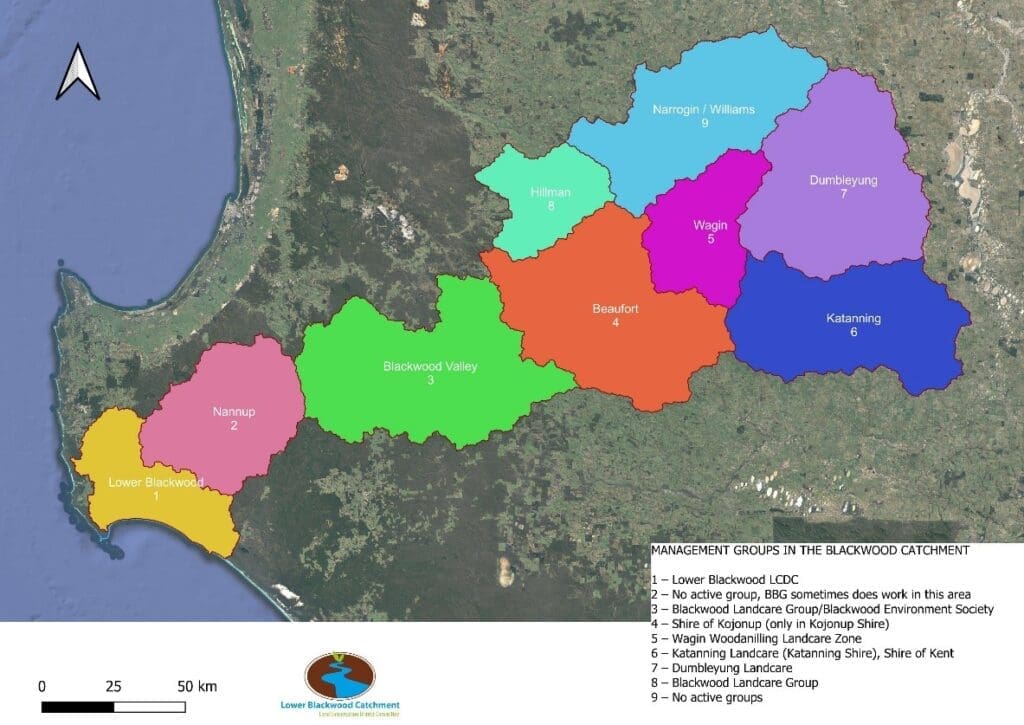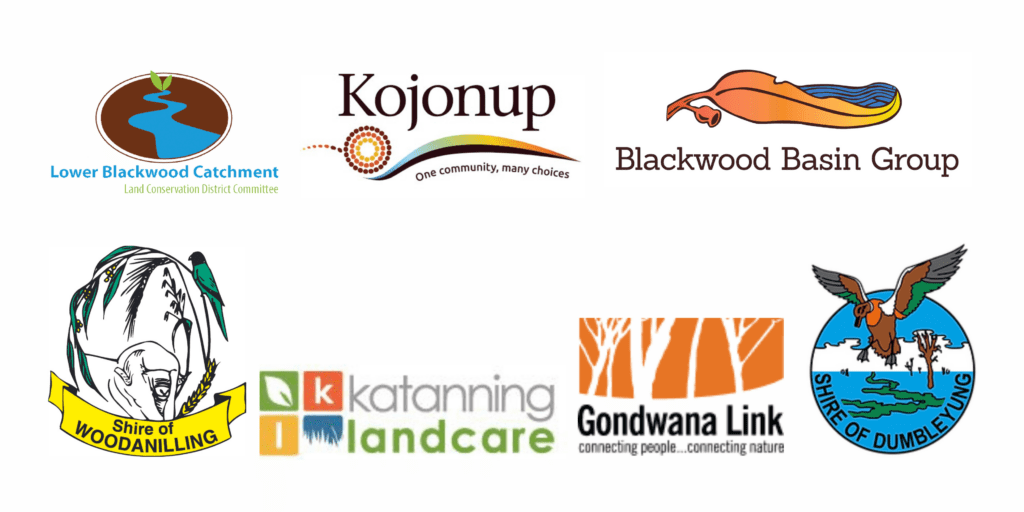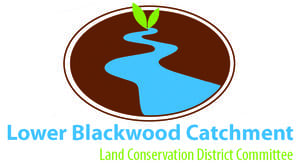Since the 90’s, community-based groups and local government authorities have tackled environmental issues that impact on the health of the Blackwood Catchment through community-based projects within their own ‘management zone’.
Despite these efforts the existing approach has proven to be fragmented and short-term in focus whilst pressing environmental issues remain.

The aim of this project is to carry out, through a collaborative process, a scoping exercise to support the long term and integrated management of the Blackwood Catchment. The resulting scoping document will summarise the initial planning discussions and outline the key steps in preparing an Integrated Management Plan for the Blackwood Catchment.
An integrated approach to catchment management is more effective at addressing complex problems of sustainability than the current approach of working within the segmented natural boundaries of a water catchment system and with the active participation of all relevant stakeholders.
Integrated catchment management recognises that land, water and biodiversity are all part of a connected environment that spans from the top of a catchment down to the coast. It acknowledges the intrinsic values of the environment and that healthy catchments underpin healthier and more productive regional economies and provide social and recreational benefits for the whole community. Shifting the focus back on the health of the whole of a catchment enables us to identify and restore the diverse ecosystems that the catchment provides, which in turn helps support more resilient, productive and sustainable living and farming.
An Integrated Catchment Management Plan (ICMP) is a tool that provides an overall view of the management objectives for the catchment and define roles and responsibilities for its implementation. It also links strategies to existing programs and activities, and sets the framework for monitoring progress and effectiveness.
Stage One (this project) consists of preparing a scoping document which outlines the overall vision, goals and objectives and the key steps and requirements for the preparation of the Plan. This will be achieved through a collaborative process with all the Landcare groups in the catchment (see Map) and key stakeholders.

The scoping exercise will help achieve the following outcomes:
- Adoption of a holistic and integrated approach to catchment management
- Agreement on priority issues and areas for future planning
- Identification of existing data/resources and data gaps for those priority issues/areas
- Increased communication, collaboration and co-ordination between groups
- Identification of key steps for developing the Plan including timeframes, resources, tasks, etc. which will inform future funding applications.
The project partners are: Katanning Landcare, Lower Blackwood LCDC, Blackwood Basin,
Dumbleyung, Shire of Kojonup, Gondwana Link, Shire of Wagin Wodanilling.

This project is supported through funding from the State Natural Resource Management (NRM) Program Community Stewardship Grants.

